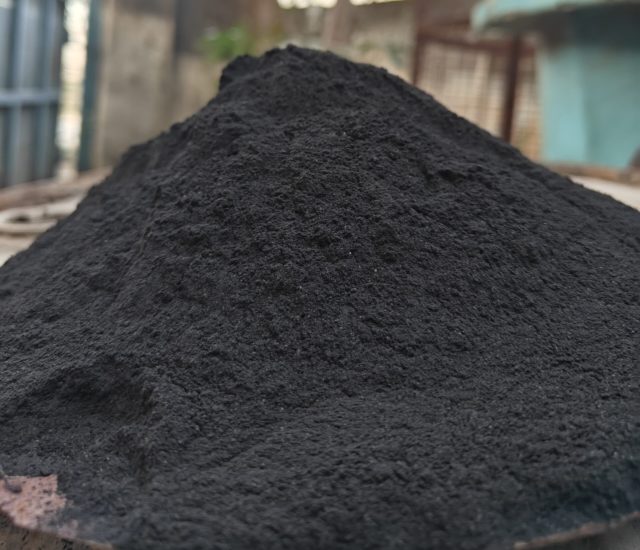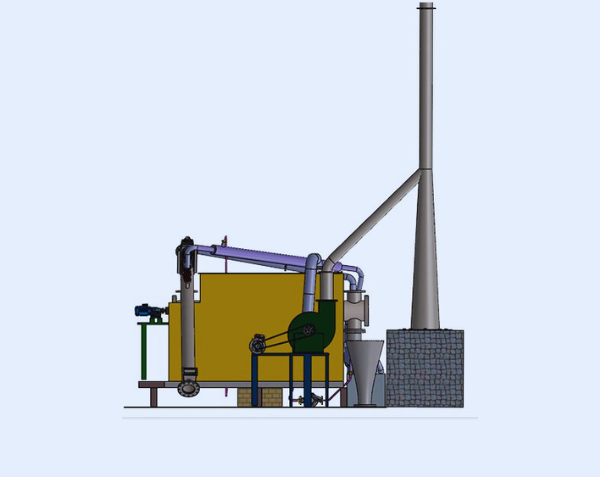Biomass to Biochar
“Empowering Sustainability: Biochar Plants for Carbon Credits and a Greener Future”

Biomass to Biochar
Biochar: Transforming Waste into a Climate Solution- KARBOTEC
Biochar is a stable, carbon-rich material produced through pyrolysis—the thermal decomposition of organic matter in an oxygen-limited environment. By locking carbon into a solid form, biochar prevents it from re-entering the atmosphere, offering a powerful tool to combat climate change.

Biomass to Biochar
The Karbotec Technology: Turning Waste into Value
We supply Continuous Turn-key plants of input capacity of 3,10,15,30,50 and 100 tons per day to produce:
- Bio char
- Bio oil
- Wood Vinegar of acceptable quality.
What Makes Karbotec Unique?
- Continuous Plant
- Reusage of Methane gas
- High-Quality Output:Consistent biochar with more than 70% fixed carbon content.
- Emission Mitigation: Designed to minimize harmful emissions.
- Ease of Use:Simple feedstock loading and charcoal discharge processes.
- Eligible for Carbon Credits: Help offset emissions and contribute to global sustainability.
The Karbotec Advantage
Our Karbotec Technology ensures efficient, environmentally friendly biochar production, offering:
- Sustainable Fuel Gases:A renewable energy source for powering equipment or generating electricity.
- Wood Vinegar (Pyroligneous Acid): A natural bio-stimulant, eco-friendly pesticide, and compost accelerator. It’s also an excellent wood preservative and livestock feed supplement.
- Bio-Oil: A renewable industrial fuel and a versatile chemical feedstock for adhesives and specialty chemicals.
- High-Grade Heat: Perfect for industrial applications or biomass drying, optimizing overall energy use.
By choosing Karbotec, you’re not just investing in technology; you’re partnering with us to achieve your sustainability goals.
Applications of Biochar: Beyond Soil Enrichment
Biochar offers extensive benefits across various industries:
1. Agriculture and Soil Management:
- Improves soil health by enhancing nutrient-holding capacity and microbial activity.
- Reduces the need for chemical fertilizers, promoting sustainable farming.
- Enhances water retention , especially in drought-prone areas.
2. Livestock Management:
- Acts as an odor reducer in animal bedding.
- Used as a feed additive to improve digestion and reduce methane emissions.
3. Wastewater Treatment:
- Filters heavy metals and organic pollutants from water, making it ideal for industrial and municipal water treatment.
4. Environmental Remediation:
- Remediates contaminated soils by adsorbing toxins like pesticides and hydrocarbons.
5. Industrial Applications:
- A component in building materials (e.g., concrete, bricks) for added strength and insulation.
- Potential use in battery technology due to its conductivity.
6. Energy Applications:
- Serves as a sustainable source of thermal energy and industrial fuel.
